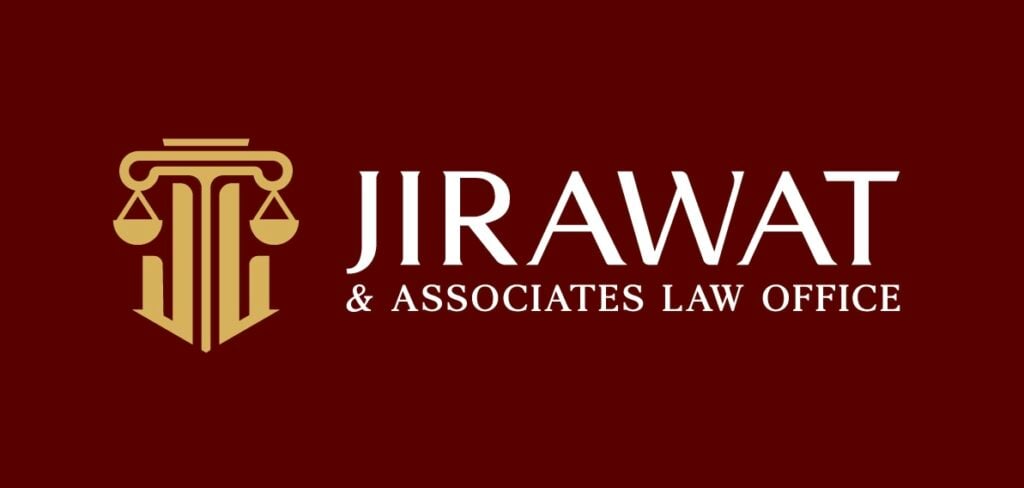

Since 2010, the Global Law Experts annual awards have been celebrating excellence, innovation and performance across the legal communities from around the world.
posted 6 months ago
Foreign investors operating in Thailand face a markedly tougher enforcement climate. Authorities are actively pursuing cases where Thai individuals or entities hold shares on paper for foreign owners to sidestep the Foreign Business Act B.E. 2542 (FBA). These “nominee” structures now draw swift investigation, criminal charges and orders to unwind the arrangement. This concise briefing explains what counts as a nominee, the legal risks under Sections 36–38, how investigations are built, the red flags that trigger scrutiny, how courts analyse these cases, and practical steps to design a compliant structure from the outset—without resorting to nominees.
Across 2024–2025 Thailand has tightened supervision of foreign participation in restricted sectors. The policy intent is straight-forward: welcoming investment while insisting on transparency and lawful control. Multiple agencies—principally the Department of Business Development (DBD), the Department of Special Investigation (DSI) and financial-intelligence units—are coordinating inspections and data-matching to find concealed foreign control. The trend lines are clear:
The message for founders, corporate counsel and boards: if the economic reality shows foreign control in a restricted activity, a Thai name on the share register will not save you.
A nominee shareholder is a Thai person or company who holds shares for the benefit and at the direction of a foreigner, without genuine capital at risk, independent decision-making, or a proportionate share of profits. Typical features include:
Under Thai law that is not legitimate “structuring”; it is a prohibited evasion of foreign-ownership controls.
Bottom line: Nominee structures routinely expose both the foreign principal and Thai stand-ins to criminal liability and business-ending court orders.
Enforcement today is evidence-driven, not form-driven. Investigators typically triangulate four streams:
1. Funding trail — Do Thai shareholders have verifiable, independent sources for their share subscriptions? Are there circular flows from a foreigner’s account to the Thai and back to the company? Are “loans” priced and repaid as real debt?
2. Control signals — Who authorises payments, signs contracts and sets policy? Email trails, board minutes, mandates and procurement approvals reveal who really runs the business.
3. Benefit flow — Are profits distributed to Thais in line with their equity, or do they leak back to the foreign side via management/royalty/consulting fees with poor commercial rationale?
4. Consistency across filings — Do DBD records, tax returns, payroll data, immigration/work-permit files and UBO/AML disclosures tell the same story?
The more these vectors align around foreign control without authorisation, the harder a nominee defence becomes.
If you recognise your structure here, assume you are investigation-ready.
Thai courts routinely pierce the veil where the economic reality contradicts the paper:
Takeaway: If the facts show foreign money, foreign control and foreign benefit in a restricted business, courts will treat the enterprise as foreign in substance and apply the FBA accordingly.
Design your structure so that it withstands scrutiny:
1. Capital provenance
Require bank-verifiable Thai funding for Thai equity (savings, asset sales, domestic loans on market terms). Avoid circular flows. Archive proof at the share certificate level.
2. Proportionate benefits
Align dividends and director remuneration with shareholding. If using service/royalty fees, document arm’s-length pricing, scope and deliverables. Periodically benchmark.
3. Governance substance
Ensure Thai directors attend, vote and sign on matters within their remit. Create a decision rights matrix that reflects reality; avoid blanket powers of attorney that gut Thai oversight.
4. Contract hygiene
Purge side letters, pre-signed transfers and “gentlemen’s agreements” that contradict filings. Your public record and private documents must tell one story.
5. UBO & AML alignment
Maintain accurate ultimate beneficial owner disclosures and source-of-funds files. If foreign influence is material, consider whether licensing (not nominees) is the honest fix.
6. Evidence readiness
Operate as if audited tomorrow: close files with board packs, bank proofs, fee justifications and policy notes. A clean dossier can change enforcement posture from hostile to pragmatic.
Thailand’s enforcement climate in 2025 sends a clear signal: nominee shareholder arrangements are no longer tolerated. The Foreign Business Act, backed by active investigations from DBD and DSI, treats such structures as deliberate evasions—punishable with imprisonment, heavy fines and ongoing daily penalties. Courts now look past paper shareholding to the economic reality of funding, control and benefit, and they will pierce the veil when foreigners secretly dominate a restricted business.
For investors and companies, the risks outweigh any short-term convenience. Attempting to hide behind Thai nominees can lead not only to criminal records but also dissolution of the enterprise and potential forfeiture of assets. The safer, smarter route is to pursue lawful ownership pathways—whether through a Foreign Business Licence, BOI promotion, treaty privileges, or carefully structured genuine joint ventures.
Compliance must be embedded from day one. That means proving Thai shareholders’ real capital contributions, ensuring governance participation, distributing profits fairly, and keeping transparent records. By adopting compliance-by-design, investors can secure their operations and build trust with regulators, partners and clients alike.
In short, foreign businesses in Thailand have a choice: operate legally and sustainably, or risk everything through nominee shortcuts.
Author


No results available
posted 5 hours ago
posted 7 hours ago
posted 7 hours ago
posted 7 hours ago
posted 7 hours ago
posted 7 hours ago
posted 8 hours ago
posted 1 day ago
No results available
Find the right Legal Expert for your business
Global Law Experts is dedicated to providing exceptional legal services to clients around the world. With a vast network of highly skilled and experienced lawyers, we are committed to delivering innovative and tailored solutions to meet the diverse needs of our clients in various jurisdictions.

Thinking of buying property in Brazil? Start with a full legal safety net.
✔️ Check title and ownership history
✔️ Verify no debts or disputes
✔️ Confirm zoning and permits.
#BrazilProperty #RealEstateInvesting #LegalDueDiligence #ForeignInvestment #PropertyLaw #GlobalRealEstate #InvestmentRisk #BrazilLaw

When your international business faces financial distress, quick action is key! 🔑 Negotiating with creditors, restructuring debt, and understanding insolvency laws can help regain stability. Global Law Experts is here to guide you through your options.
🌍Explore the details on our website.
🔗Link in bio
#GlobalLawExperts #CommercialLaw #BusinessLaw #LegalAdvice #BusinessGrowth #LegalTips #BusinessStrategy #LegalCompliance #Law #LegalKnowledge #LegalAwareness #Law101 #LegalEducation #IntellectualProperty

Thinking of buying property in Brazil? Don’t stop at the contract or key handover. Make sure the title is officially registered before calling it yours.
#BrazilRealEstate #PropertyLaw #GlobalInvestment #ForeignInvestors #LegalTips #DueDiligence #RealEstateRegistration #SecureInvestment

Getting a termination notice right now? Know your rights. Valid reason, fair process, proper notice they matter. Don’t let a bad dismissal walk away without accountability.
#EmploymentLaw #WorkerRights #Termination #LaborLaw #FairDismissal #WorkplaceJustice #LegalAwareness #GlobalWorkforce

Running a business is hard enough — lawsuits shouldn’t make it harder. 🚫 Protect your business with the right legal strategies and expert tools from Global Law Experts. Let’s secure your future together! 💼
🌍Explore the details on our website.
➡️www.globallawexperts.com
#GlobalLawExperts #CommercialLaw #BusinessLaw #LegalAdvice #BusinessGrowth #LegalTips #BusinessStrategy #LegalCompliance #Law #LegalKnowledge #LegalAwareness #Law101 #LegalEducation #IntellectualProperty #Infringed #Ecommerce #LegalBranding
Global Law Experts is dedicated to providing exceptional legal services to clients around the world. With a vast network of highly skilled and experienced lawyers, we are committed to delivering innovative and tailored solutions to meet the diverse needs of our clients in various jurisdictions.

Thinking of buying property in Brazil? Start with a full legal safety net.
✔️ Check title and ownership history
✔️ Verify no debts or disputes
✔️ Confirm zoning and permits.
#BrazilProperty #RealEstateInvesting #LegalDueDiligence #ForeignInvestment #PropertyLaw #GlobalRealEstate #InvestmentRisk #BrazilLaw

When your international business faces financial distress, quick action is key! 🔑 Negotiating with creditors, restructuring debt, and understanding insolvency laws can help regain stability. Global Law Experts is here to guide you through your options.
🌍Explore the details on our website.
🔗Link in bio
#GlobalLawExperts #CommercialLaw #BusinessLaw #LegalAdvice #BusinessGrowth #LegalTips #BusinessStrategy #LegalCompliance #Law #LegalKnowledge #LegalAwareness #Law101 #LegalEducation #IntellectualProperty

Thinking of buying property in Brazil? Don’t stop at the contract or key handover. Make sure the title is officially registered before calling it yours.
#BrazilRealEstate #PropertyLaw #GlobalInvestment #ForeignInvestors #LegalTips #DueDiligence #RealEstateRegistration #SecureInvestment

Getting a termination notice right now? Know your rights. Valid reason, fair process, proper notice they matter. Don’t let a bad dismissal walk away without accountability.
#EmploymentLaw #WorkerRights #Termination #LaborLaw #FairDismissal #WorkplaceJustice #LegalAwareness #GlobalWorkforce

Running a business is hard enough — lawsuits shouldn’t make it harder. 🚫 Protect your business with the right legal strategies and expert tools from Global Law Experts. Let’s secure your future together! 💼
🌍Explore the details on our website.
➡️www.globallawexperts.com
#GlobalLawExperts #CommercialLaw #BusinessLaw #LegalAdvice #BusinessGrowth #LegalTips #BusinessStrategy #LegalCompliance #Law #LegalKnowledge #LegalAwareness #Law101 #LegalEducation #IntellectualProperty #Infringed #Ecommerce #LegalBranding
Send welcome message